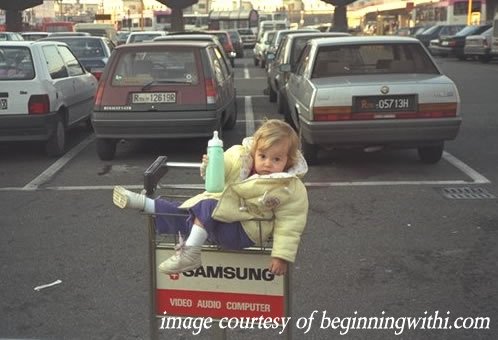News sources reported recently on a survey of American teens which shows scary correlations between the habits of the people kids spend time with, and the likelihood that they themselves will do various things (drugs, alcohol, sex). It seems that hanging out with the proverbial “wrong crowd” really can lead to trouble.
The New York Times goes on to say: “The survey suggested a simple way for parents to reduce the likelihood that their teenage children would smoke, drink or use drugs: have dinner with them. Teenagers who reported having fewer than two family dinners a week were one and a half times likelier to abuse these substances than those who had five or more dinners a week with their parents. They were also more likely to have sexually active friends or spend more than 25 hours with a significant other. But as teenagers grow older they are less likely to have family dinners, the survey found; older teenagers are also more likely to be substance abusers or engage in sexual activity.”
I have written before about the central role of family meals in Italian culture, and how they help Italian teenagers to grow up civilized. Eating together isn’t a panacea; drug and alcohol abuse do exist in Italy, and alcohol abuse seem to be on the rise particularly among young people.
But Italy has a long way to go to “catch up” on that front, and there is hope that it won’t go that far. After all, many Americans are attracted to Italy’s more leisurely, family-oriented lifestyle – there’s even a book about how to live an Italian lifestyle in the US. (NB: I have not read it, nor am I likely to.)
A New York Times opinion piece today on curbing teenage drinking says: “This summer, we’re celebrating the 20th anniversary of the minimum drinking age of 21, signed into law by President Ronald Reagan in 1984. That legislation has saved an estimated 20,000 lives.” The author calls for more funding for enforcement to prevent underage drinking.
At 18, Americans are old enough to vote, and to make life-or-death decisions such as joining the military. They’ve been driving since they were 16, unlike European teens (driving age is 18 here), and most are leaving home to go to college or enter the work force – they are legally independent of their parents. Yet they’re NOT old enough to drink. Huh?
As usual, American culture focuses on the wrong things. You don’t stop teenagers doing stupid things by telling them not to – which is simply hypocritical when most of their parents did the same, or worse, when they themselves were teenagers. Teenagers can spot hypocrisy miles away, and rightly despise it.
You also don’t stop kids doing “bad” things by “shielding” them. In spite of the censorship of American television, most kids are very familiar with the word “fuck” by third grade or so.
And you don’t stop teenagers having sex by pretending it doesn’t exist, or that it only exists within marriage. I’ve recently been told by a friend, who works in pregnancy prevention in the US, about studies showing that, in households where sex is freely and openly discussed, kids tend to start having sex later.
Adults drink, and swear, and have sex, and it’s useless to pretend that we don’t. Teenagers are growing up, they want to feel adult, and want to do these “grown up” things themselves. You can’t stop them doing things; you can only try to prevent them from hurting others or getting hurt themselves. (Morally and emotionally, as well as physically.)
The solution is honesty, openness, and responsibility. Let kids learn to drink responsibly, by starting at home, at family meals. Teach them to have safe sex, by talking with them about it, answering any and all questions, and getting them to a clinic for birth control. As for swearing, I learned about swearing responsibly from my dad long ago, when I was about 10 years old:
“When you drop a hammer on your toe, it’s okay to swear,” he said. “But you don’t sit at the dinner table and say: ‘Pass the fucking salt.’ “










